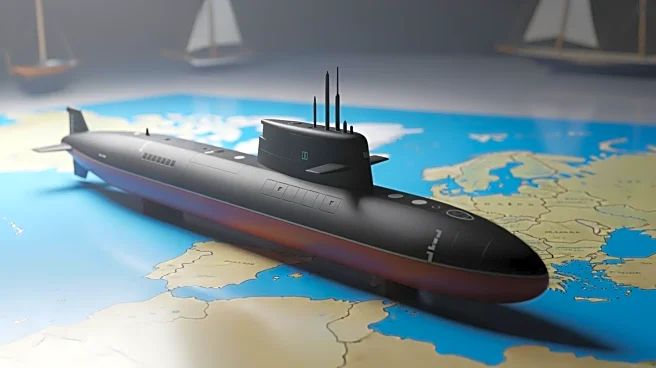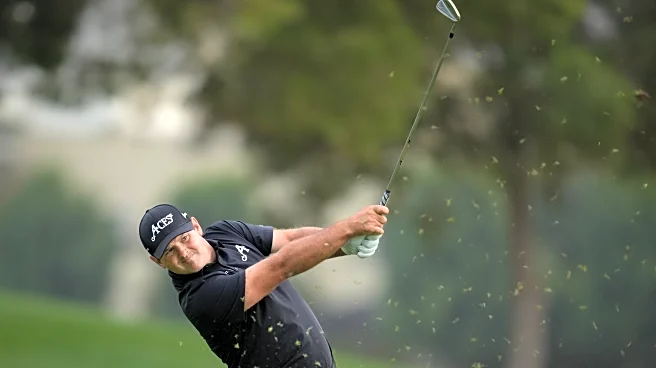What's Happening?
UK Defence Secretary John Healey has issued a warning to Russian President Vladimir Putin regarding the increased presence of Russian submarines in UK waters. Healey noted a 30% rise in Russian vessels, which he attributes to heightened Russian aggression
impacting Europe. The Ministry of Defence has reported that Russian submarine activity in the North Atlantic has returned to Cold War levels. In response, the RAF and Royal Navy have intensified their surveillance efforts, conducting frequent missions in collaboration with NATO allies. Healey's remarks were made during a media-accompanied flight on an RAF P-8 aircraft, a high-tech surveillance plane equipped with advanced sensors and sonar buoys for submarine detection.
Why It's Important?
The increased Russian submarine activity poses a significant threat to European security, particularly concerning the potential disruption of critical undersea cables, which could lead to widespread communication outages. The UK's response, alongside NATO allies, underscores the importance of maintaining robust maritime defenses to counter potential hybrid warfare tactics by Russia. This development highlights the ongoing geopolitical tensions in the region and the necessity for European nations to enhance their military cooperation and readiness. The situation also emphasizes the strategic importance of the North Atlantic as a critical area for both surveillance and defense operations.
What's Next?
The UK and Germany are strengthening their defense collaboration, as evidenced by Germany's purchase of UK-made Sting Ray torpedoes and plans to conduct maritime patrols from RAF Lossiemouth. This partnership is part of a broader effort to bolster European defense capabilities against Russian threats. Additionally, the two countries are committed to working together on cybersecurity initiatives. As tensions persist, further military investments and joint operations are likely to continue, with a focus on safeguarding critical infrastructure and enhancing regional security.
Beyond the Headlines
The situation reflects broader concerns about Russia's use of hybrid warfare tactics, including disinformation and cyber attacks, which pose complex challenges for European security. The deepening UK-Germany defense relationship, marked by the Trinity House Agreement, signifies a strategic shift towards greater European military integration. This collaboration may set a precedent for other European nations to follow, potentially leading to a more unified and coordinated defense strategy across the continent.
















